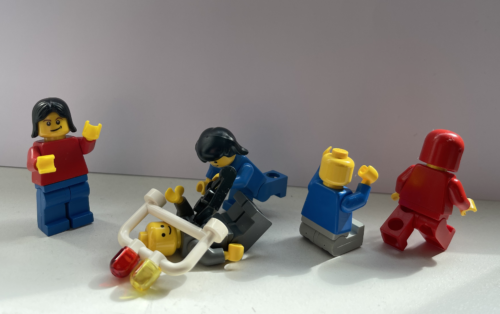
Team Development is helpful in a number of cases. At times there are challenges in the team, such as difficulties with individual employees, a sudden increase in the volume of work, or unclear responsibilities. Hidden or open conflicts drain energy, or the team is impacted by pending organizational change. Common challenges in teams are also a lack of commitment, differences in the inclination to take responsibility or a lack of mutual trust. To address these issues, I offer tailored workshops to support teams in finding actionable solutions. If psychological safety is lacking, team members are not able to use their mistakes for learning without fear.
For newly appointed leaders, growing into their role can be a huge challenge. Suddenly, your peers from yesterday are now your "subordinates". And anyway, what could "leading" mean in my particular situation? (This blog post in German summarizes the problem.)
How Team Development works
Although some issues seem to be "trivial" at first sight, many of them are intricately connected to your context, people and culture and therefore not solvable by best practice approaches. To discover this complexity, it is best to involve all stakeholders to find the best solution. Depending on the subject, this can mean coaching the leaders, and/or workshops with the whole team. Sometimes it is sufficient to just provide external facilitation for a workshop or a retrospective. In this way, role conflicts are avoided and all participants can bring in their perspective in an unbiased way. In other cases, team development or team coaching can address the underlying interpersonal issues in the team by asking the relevant questions and provoking helpful interactions.
In my coaching, an important goal is to enable leaders and teams to tackle the challenges also without a coach in the future. Every team is different. That's why I do not promote one specific approach or a hyped explanatory model, but rather try to find out together with you which model/approach could be helpful in your case.
My preferred approach is iterative (agile): We set the big goal or vision and then plan the next step in this desirable direction. Only after the results of this first steps are in, we can decide together on where to go next.
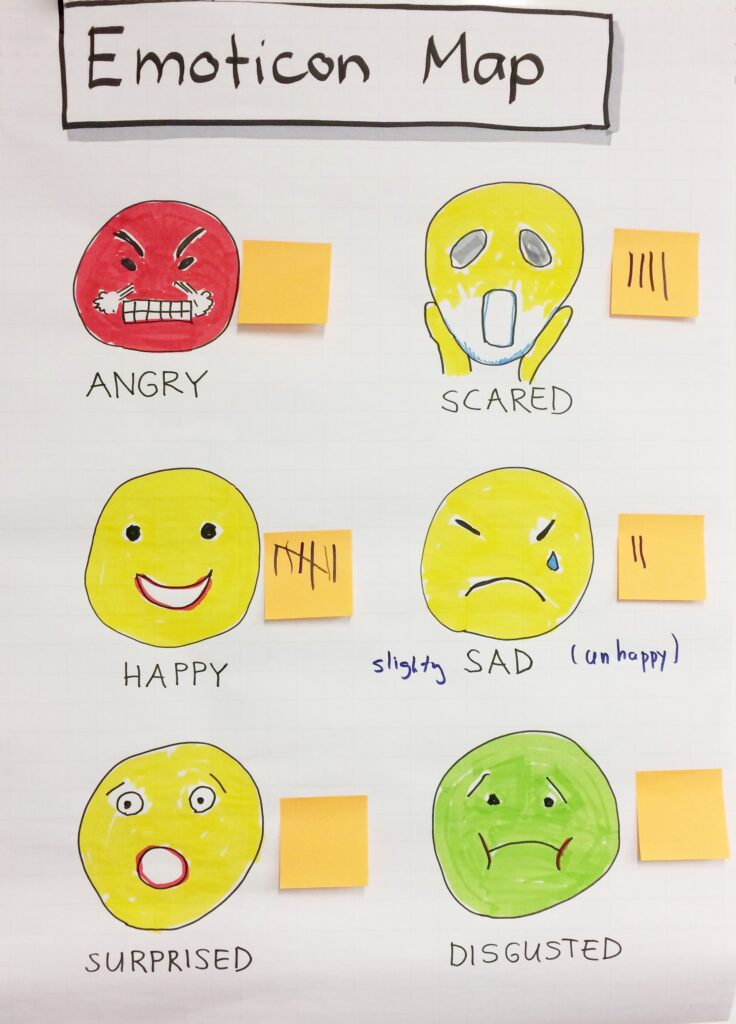
Blog Posts related to Team Development (in German)
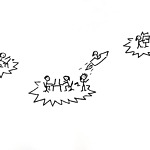 Hybride Teams: Wie fördere ich Teamkultur und informellen Austausch? - Während die technologischen Herausforderungen von hybriden Teams mittlerweile vielerorts gelöst sind, ist das hybride Führen nach wie vor anspruchsvoll. Hier ein paar Ideen, wie die informelle Kommunikation und das "Sich-als-Team-Spüren" angegangen werden könnte.
Hybride Teams: Wie fördere ich Teamkultur und informellen Austausch? - Während die technologischen Herausforderungen von hybriden Teams mittlerweile vielerorts gelöst sind, ist das hybride Führen nach wie vor anspruchsvoll. Hier ein paar Ideen, wie die informelle Kommunikation und das "Sich-als-Team-Spüren" angegangen werden könnte.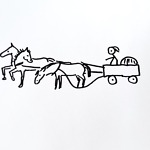 Mangelnde Kooperation: Was mache ich, wenn ein Teammitglied nicht mitzieht? - Mangelnde Kooperation beeinflusst die Leistung eines Teams sehr direkt. Diese Situation kann sowohl für die Teamleitung wie für die Teammitglieder sehr belastend sein. Und nicht selten auch für das betroffene Teammitglied. Eine Analyse, welche Typen von "nicht mitziehen" es geben kann und eine Checkliste zum konkreten Vorgehen.
Mangelnde Kooperation: Was mache ich, wenn ein Teammitglied nicht mitzieht? - Mangelnde Kooperation beeinflusst die Leistung eines Teams sehr direkt. Diese Situation kann sowohl für die Teamleitung wie für die Teammitglieder sehr belastend sein. Und nicht selten auch für das betroffene Teammitglied. Eine Analyse, welche Typen von "nicht mitziehen" es geben kann und eine Checkliste zum konkreten Vorgehen.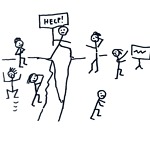 Wie agile Settings Konflikte fördern – und wie man diese konstruktiv nutzt - Konflikte sind eine Möglichkeit, Teams und ganze Organisationen weiterzubringen. Gerade agile Settings sind - was leider noch zu wenig bekannt ist - darauf angelegt, dass Konflikte sichtbar werden und ausgetragen müssen. Nur wenn das Bewusstsein dafür vorhanden ist und die Konflikte konstruktiv gelöst werden, entfaltet die Agilität ihre positive Wirkung.
Wie agile Settings Konflikte fördern – und wie man diese konstruktiv nutzt - Konflikte sind eine Möglichkeit, Teams und ganze Organisationen weiterzubringen. Gerade agile Settings sind - was leider noch zu wenig bekannt ist - darauf angelegt, dass Konflikte sichtbar werden und ausgetragen müssen. Nur wenn das Bewusstsein dafür vorhanden ist und die Konflikte konstruktiv gelöst werden, entfaltet die Agilität ihre positive Wirkung.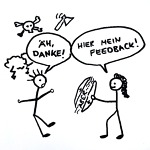 Feedback nein danke! 3 Alternativ-Tipps für schwierige Gespräche - Wenn Ihnen der Gedanke an Feedback auch Bauchweh macht: Dies ist oft berechtigt und aus der ungünstigen "Feedback-Kultur" durchaus erklärbar. Ein Plädoyer für das Ersetzen von Feedback durch Gespräche auf Augenhöhe.
Feedback nein danke! 3 Alternativ-Tipps für schwierige Gespräche - Wenn Ihnen der Gedanke an Feedback auch Bauchweh macht: Dies ist oft berechtigt und aus der ungünstigen "Feedback-Kultur" durchaus erklärbar. Ein Plädoyer für das Ersetzen von Feedback durch Gespräche auf Augenhöhe.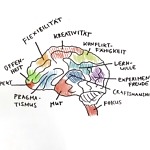 Hilfe, mein Team hat kein agiles Mindset! - Hinter dem Wort "Mindset" versteckt sich ein ganzer Komplex von Ideen, der die teils angeborenen, teils erlernten psychologische Wesenszüge eines Menschen mischt mit dessen persönlichen Überzeugungen, Annahmen und Wertvorstellungen. Deshalb gibt es auch mehrere Ansätze, es zu erreichen: Training, Teamworkshops, Coaching oder den Einsatz agiler Frameworks können dabei helfen.
Hilfe, mein Team hat kein agiles Mindset! - Hinter dem Wort "Mindset" versteckt sich ein ganzer Komplex von Ideen, der die teils angeborenen, teils erlernten psychologische Wesenszüge eines Menschen mischt mit dessen persönlichen Überzeugungen, Annahmen und Wertvorstellungen. Deshalb gibt es auch mehrere Ansätze, es zu erreichen: Training, Teamworkshops, Coaching oder den Einsatz agiler Frameworks können dabei helfen.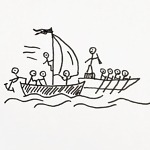 Mehr Verantwortung im Team: 5 Tipps für Führungskräfte - Wie schaffe ich es, dass mein Team mehr Verantwortung übernimmt? 5 Tipps wie Sie als Führungskraft zu mehr Team Commitment kommen.
Mehr Verantwortung im Team: 5 Tipps für Führungskräfte - Wie schaffe ich es, dass mein Team mehr Verantwortung übernimmt? 5 Tipps wie Sie als Führungskraft zu mehr Team Commitment kommen.